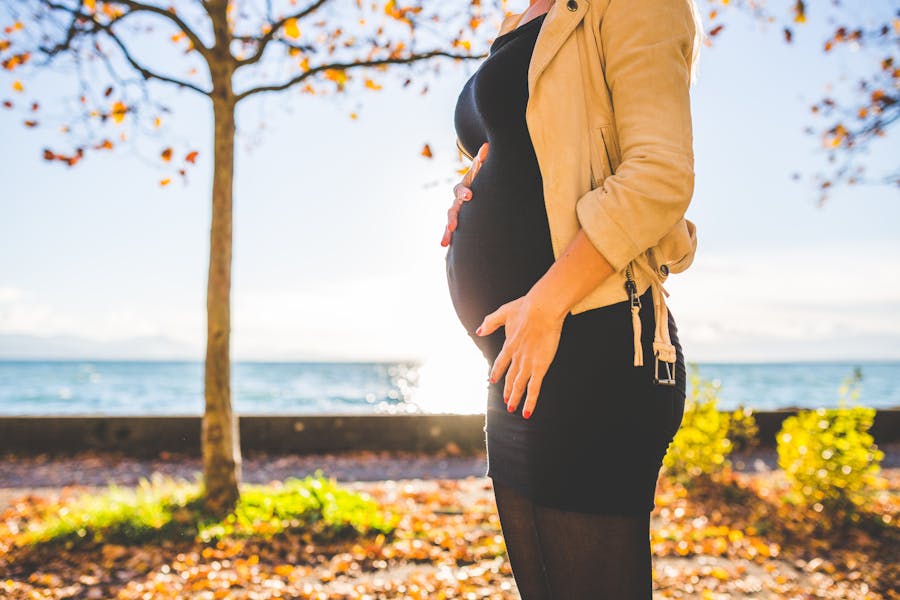Preventing pregnancy after a week can be quite daunting and stressful. While many medical and surgical methods are available, most persons often seek natural alternatives. This paper reviews what to drink to prevent pregnancy after a week, exploring several natural drinks and their efficiency. These methods described above, though not scientifically proven as much as the medical interventions, are quite popular in various cultures for their supposed benefits. This detailed guide will talk about different drinks, their possible benefits, and exactly how they might work in preventing pregnancy after a week. It is for information purposes, though seeking the help of a healthcare professional will always come in handy.
What to drink to prevent pregnancy after a week?
Even though scientifically, there are no drinks that can prove to prevent pregnancy after a week; there are some natural beverages that are considered to have contraceptive effects. Concretely, they involve papaya juice, parsley tea, ginger tea, and ascorbic-rich drinks. None of such methods can be treated as reliable. They shouldn’t replace a qualified medical consultation and corresponding contraceptive methods in the first place.
Drinks to Naturally Prevent Pregnancy
There are plenty of natural remedies that are believed to help avert pregnancy if taken within a specific time frame. Most of these methods have no scientific validation, but they have been widely used in many cultures. In any case, one needs to use these methods very cautiously and after consulting a health professional. In this article, we will look at some of the most popular natural drinks that are believed to be contraceptive in effect.
One such commonly suggested drink is ginger tea. It works by stimulating your menstrual cycle and prevents implantation. To make ginger tea, boil fresh slices of ginger in water for about 10 minutes. Strain and have it warm. Its regular consumption is believed to prevent pregnancy after a week.
Another such remedy is the juice of papaya. Papaya contains an enzyme called papain, which may interfere with progesterone, a hormone that is necessary during pregnancy. Some ladies drink two glasses of papaya juice for some days after unprotected sex. Though it works in some cases, women need to consume it within limits, as excess intake may cause adverse effects.
This is usually recommended as parsley tea, which can induce periods. Parsley contains some compounds that stimulate uterine contractions. To make the parsley tea, steep fresh parsley in boiling water for 10 minutes, then strain and drink. According to this belief, this tea will prevent pregnancy if taken within a week of having unprotected intercourse.
Another old-fashioned cure is neem tea. Neem leaves are believed to act as a contraceptive and have been used throughout history in many various cultures. Just boil the neem leaves in water, then strain and drink the tea. It is believed that neem has spermicidal properties, but again, little scientific evidence comes forward to support this, so professional advice is vital.
These natural remedies are pretty in vogue, but one must always remember the fact that they lack any scientific grounds as methods of contraception. One should best consult health experts, who in turn can provide effective and harmless options for birth control.
Understanding Natural Contracepted Methods
What is Natural Contraception?
One defines natural contraception as methods that rely on natural substances or behaviors and not on synthetic drugs or devices. Mostly, they are based on traditional practices and are in use among people distant from conventional contraceptive measures.
How Effective Are Natural Drinks?
Many pregnancy preventing drinks derived from nature vary largely in effectiveness and have not been validated scientifically. Where some women found this to be effective, others might not benefit from the process at all. It must, therefore, be kept in mind that such measures must never supersede professional advice.
Possible Side Effects and Risks
These home remedies may be applied to contraception, but they can also be hazardous and can bring about side effects. For instance, excessive ginger or papaya intake may lead to digestive problems or allergic reactions. One is thus wise to always exercise caution and moderation when using such remedies.
When to Use Natural Methods
Most people rely on natural methods when they need alternative or supplementary contraception. They can be used alone or combined with other methods and in locations where conventional contraception is not available.
Consulting a Healthcare Provider
Before trying to use any natural contraceptive methods, ensure you consult a health professional. They will help in advising not just on safe and effective birth control methods but also help understand the potential risks or benefits of these natural remedies.
When to Consider Natural Contraceptives?
Natural contraceptives might be considered under specific circumstances where modern contraceptive methods are either inaccessible or unsuitable for various reasons. Here are some scenarios in which considering natural contraceptives could be appropriate:
Limited Access to Modern Contraceptives: In regions where modern contraceptive methods like birth control pills, IUDs, or condoms are not readily available, natural contraceptives may serve as an alternative. These natural methods, such as drinking specific herbal teas or consuming certain fruits, can be more accessible in such areas.
Personal or Cultural Beliefs: Some individuals may prefer natural contraceptives due to personal, cultural, or religious beliefs. For instance, people who prefer to avoid synthetic chemicals or hormones might opt for natural methods to align with their lifestyle choices or cultural practices.
Health Concerns: Individuals who experience adverse reactions or health issues related to modern contraceptive methods may seek natural alternatives. For example, women who cannot tolerate the side effects of hormonal contraceptives might consider natural options to avoid these complications.
Temporary or Supplementary Use: Natural contraceptives can also be considered for temporary use or as a supplementary method. For example, someone who is between prescriptions for hormonal birth control might use natural methods as a stopgap measure. However, these should not be relied upon as the primary form of contraception.
Preference for Non-Invasive Methods: Some individuals might prefer non-invasive methods over medical procedures. Natural contraceptives, being non-invasive, can appeal to those who want to avoid surgical or hormonal interventions.
Warping Up
Conclusively, the discovery of what to drink to avoid pregnancy after a week has thrown light on several natural remedies that have become very popular recently; these include papaya juice, parsley tea, ginger tea, and Vitamin C-enriched drinks. While such forms of contraception are very interesting and based on ancient customs, they lack scientific justification when compared to recently discovered forms of contraception. Therefore, several types of natural contraceptive measures need to be taken cautiously and by consulting professional medical advice. However, in this modern age, no other method can be trusted for reliable prevention other than the use of modern contraceptives. Assured reproductive health is a product of informed decisions and medical expertise.
FAQ’s
Q. Does papaya juice really help prevent pregnancies?
A. Papaya juice has been famous for its contraceptive effect, but it is not supported by scientific studies. The juice itself may disrupt the levels of your hormone, but it should not be considered a reliable method.
Q. Parsley tea prevents pregnancy; how?
A. It is believed to bring on a period and avoid falling pregnant. Therefore, it should be used with caution since excessive intake can cause some harmful side effects.
Q. Health Risks of Using Ginger Tea as a Contraceptive Measure
A. Ginger tea is believed to have abortifacient properties. In any case, its effectiveness is not medically proven. Large intakes of ginger tea could cause heartburn and digestive problems.









